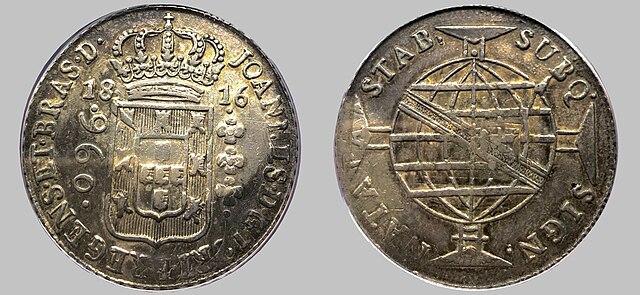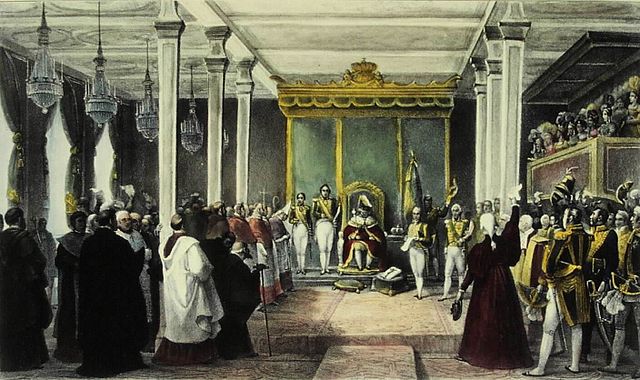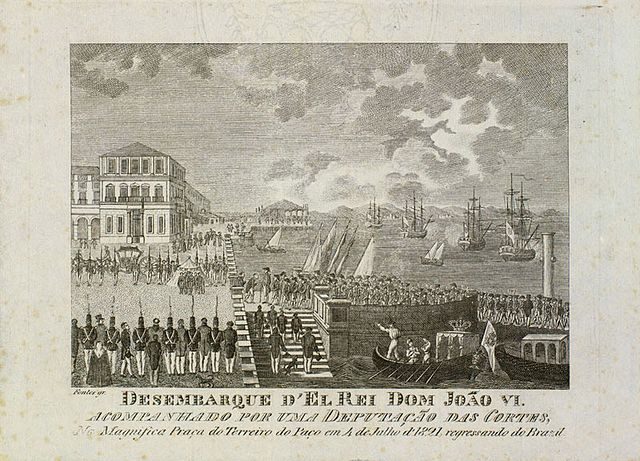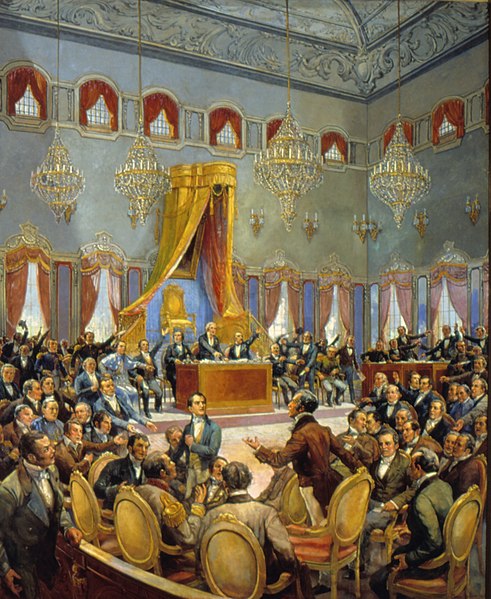Colonial Brazil comprises the period from 1500, with the arrival of the Portuguese, until 1815, when Brazil was elevated to a kingdom in union with Portugal. During the 300 years of Brazilian colonial history, the main economic activities of the territory were based first on brazilwood extraction, which gave the territory its name; sugar production ; and finally on gold and diamond mining. Slaves, especially those brought from Africa, provided most of the workforce of the Brazilian export economy after a brief initial period of Indigenous slavery to cut brazilwood.
The brazilwood tree, which gives Brazil its name, has dark, valuable wood and provides red dye
Historical centre of Salvador in 2007 – the architecture of the city's historic centre is typically Portuguese.
17th-century Jesuit church in São Pedro da Aldeia, near Rio de Janeiro
View of a sugar-producing farm (engenho) in colonial Pernambuco by Dutch painter Frans Post (17th century)
United Kingdom of Portugal, Brazil and the Algarves
The United Kingdom of Portugal, Brazil and the Algarves was a pluricontinental monarchy formed by the elevation of the Portuguese colony named State of Brazil to the status of a kingdom and by the simultaneous union of that Kingdom of Brazil with the Kingdom of Portugal and the Kingdom of the Algarves, constituting a single state consisting of three kingdoms.
Brazil 1816 960 reis, Overstruck over Spanish 8 Reales.
The acclamation of King João VI of the United Kingdom of Portugal, Brazil and the Algarves in Rio de Janeiro
King John disembarks in Lisbon in 1821, after 13 years in Brazil
The Cortes of the United Kingdom of Portugal, Brazil and the Algarves assembled in Lisbon in the wake of the 1820 Portuguese Revolution.








